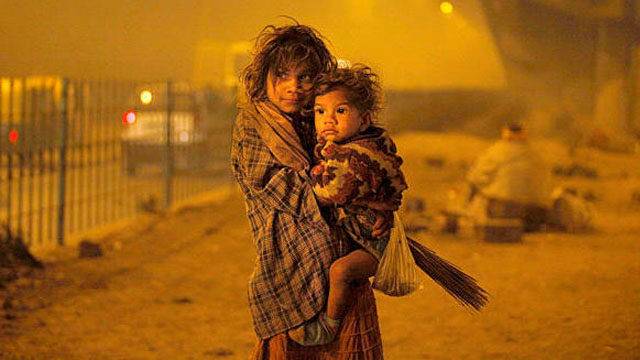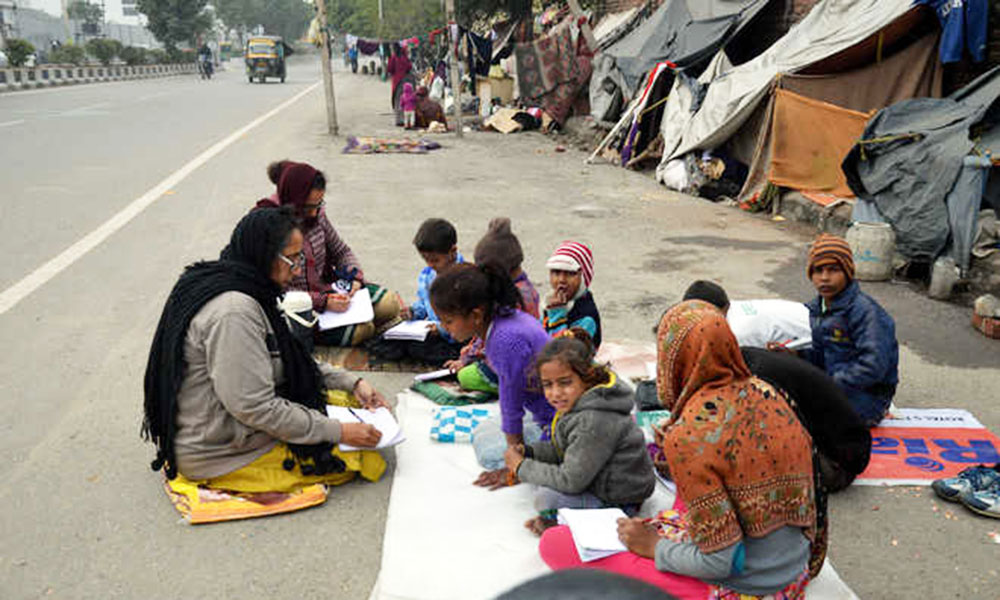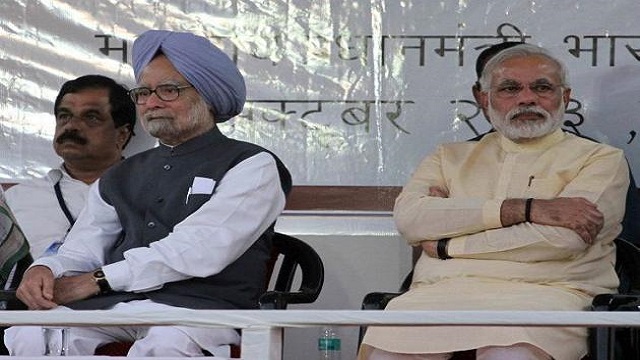Perturbed by the rise in death toll during winters in Delhi, Samath Pathak tells the sad tale of one
11.45 PM. With the temperature hitting its chilliest low, the dark, cloudless night is at its coldest best.
It is that time of the hour when the icy wind stings, numbs and fills the insides of the human frame with a vengeance, mysteriously yet openly creeping into the mind, body and soul of its victim to transform it into an eternal, ethereal mortal shell. It is that time of the hour when the sighs of the weak echo in stone cold silence of the snazzy, cosmopolitan life—a life air conditioned, obnoxious and fake, devoid of feelings and emotions, nothing but an insensitive sum zero equation of monetary profit and loss. It is the time of the hour, when another lifeless body falls limp on a pavement, cold, colder than the indifference of the passersby—a company executive, a ‘morning activist evening party animal,’ a page-three socialite, the bureaucrat driving towards his A1 bungalow in a red beacon government car, the businessman, the film star, the millionaire spiritual leader, the elite citizens of the maximum city. And, it is that time of the hour, when the little girl, with chilly mist coming out of her mouth as she breathes, feels the pain, the pain of winter, a harsh winter, the pain of being homeless, helpless, penniless, shunted from the world, discriminated, forced to spend the icy night out in the open.
Numbed by the dipping mercury, this young girl–whose innocent, light-brown, otherwise expressive eyes seem to be yearning for a little warmth in this eerie chill–looks longingly at the flickering flames of a dying, distant bonfire, ‘crudely’ made of yesterday’s newspaper featuring photographs of the smiling local politician standing with folded hands, selling hollow dreams. Perhaps, all she needs is a blanket. Or perhaps just a warm cup of tea, or an old, discarded sweater lying in a garbage dump in the back alley, or a windcheater that though torn from the sides, is still good enough to cheat the cold.
Or perhaps, just a reassuring hug from her mother, who lies beside her on the rough, rugged pavement, coughing, weak, ill and tired from yet another day’s work of hard labour at the factory, completing yet another cycle in the vicious circle of poverty and injustice, sacrifice and compromise.
Why, she wonders, as time moves slowly, each minute in the freezing cold feeling like eternity–Why the suffering? Why the pain? Why me? Why my mother? Why us?
Three hours pass by, and the freezing temperature is the only thing darker than the winter night. The young girl is still twisting and turning, snuggling and cozying up to her own frail, emancipated frame, in a failed bid to prevent the deadly breeze from freezing her deep within. Struggling to keep her numb, tiny fingers warm, she looks around her, even as the all-embracing cold wave hits like a silent bullet from a masked assassin.
She sees the state of other street-dwellers around her–the night-creatures, the oppressed, the weak, victims of gross injustice, those unnamed statistical figures of the skewed poverty line for whom the notion of human rights is as senseless as the failure of the government and the people as a whole to give them shelter for a night, just one night, just one night of this cruel winter…
The young girl–her eyes now drooping with the searing cold-induced pain in her head—looks around desperately for something to cover herself up. A plastic polythene, an empty packet of potato chips, sachets of tobacco powder, cigarette stubs, a newspaper.
Ah, a newspaper, she says. With her hands shivering, the girl moves her fingers a little to the left, extending them to the extent that the newspaper is now just almost within grasp. With one last forceful push, she gets it. Covering her body with the newspaper’s centre spread, she smiles feebly, looking at the skies above, as if expressing gratitude to the god who lives elsewhere from the sprawling billion-dollar mansion-like temple built barely a mile away.
She closes her eyes, but she feels cold. Her eyes open, and she closes them again. She is still cold. The hydra-headed monster of winter is still standing, as if waiting to pounce and dig its brutal fangs into her.
After playing hide and seek for hours, sleep finally catches up with the young girl. Her breathing becomes rhythmic, her eyes are still, her posture stiff. Suddenly, a wonderful dream flashes behind her closed eyes–a beautiful, small but modest house she calls home, with her father and mother and little brother living happily. There is a bed for her, and everyone, a bed with soft cotton pillows and sheets soft as velvet…a warm bed, for winter…there will be no more suffering any more, ma, no more winters….
The night passes, and dawn appears. As the dark is making way for the sun’s first rays, the sky is painted with the colour of a darkish, pinkish hue, and nature appears to be waking up and silently stirring afresh. Birds hover in the sky, filling the landscape with their ‘coos’ and ‘tirrups,’ while the other animals on two legs get on with their daily chores.
However, the sleeping girl appears to be in the middle of another dream, another beautiful, unimaginably wonderful and soothing trance-like state of fantasy. There is a soft smile on her face, but her eyes are closed. Her mother touches her, shakes her, stirs her, but the young girl does not move. She has passed on– too far from the world where the colder-than-ice human indifference hurts and kills—and she is not coming back.
Her etherised eyes remain closed, never to open again.
And the daily newspaper screams—‘cold wave at night claims 12 lives.’ She is one of those twelve.
Another statistic. Another forgotten, forsaken life. Yet, nobody’s fault?





